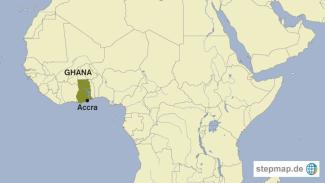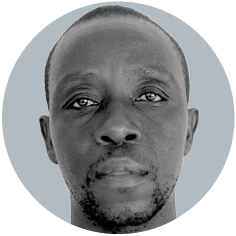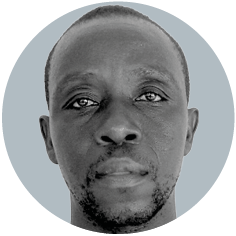Social services
Vulnerable and voiceless

Deaf children have limited access to education, which in turn impedes their later opportunities for jobs. Deaf people also have reduced access to health care, including mental health services. Their inability to communicate in the same way as others is a daily hindrance.
The difficulties for deaf people in Ghana begin at an early age. Only 16 public schools serve the approximately 110,000 deaf children in Ghana. The association estimates that this shortage leaves 80% of deaf children without access to education.
The Ghana National Association of the Deaf (GNAD) has tried to remedy the situation by advocating for interpreter services to translate spoken words into sign language in schools. But it has made few inroads, with the result that many deaf children do not attend school.
Mabel Agyei Adowa, a teacher, expressed concern about the many deaf children in Ghana who stay at home for lack of sign language interpreter services in schools. “Many parents of deaf children have become hopeless due to lack of interpretation services,” she says. “They do not know how to educate their children.”
Only about 20% of deaf people who complete their primary school education continue to secondary school, says Daniel Fobi, a lecturer in special education at the University of Education – Winneba, a university in the central region of Ghana. Even that select group faces restrictions. “Those who can attend secondary schools are not allowed to study science or business,” Fobi says. “They are only allowed to study arts or technical subjects.”
In addition, some deaf secondary school students must pay for their own sign language interpreters, he says. Because of the barriers facing deaf children in Ghana, many perform below the level of their hearing colleagues.
Health-care delivery to deaf people is a further area of concern. The inability of doctors and nurses to understand deaf patients can cause misdiagnoses and wrong prescriptions. This has particularly affected pregnant deaf women receiving prenatal care. Lack of access to sign-language interpretation is compounded by negative social attitudes toward deaf people. Stigma and discrimination play a major role in marginalising the deaf.
GNAD is calling on the government to require all state institutions to employ sign language interpreters. “We call on the state to review of the disability law with a view toward recognising Ghanaian sign language,” said Juventus Duorinaah, Executive Director of GNAD.
Ghana ratified the UN convention on the rights of persons with disabilities in 2012 and adopted a policy of inclusive education in 2015. But sign language interpretation is still widely perceived as an oddity that has no place in an educational setting. Nor does sign language have legal recognition as a necessary part of public service delivery. So the isolation of Ghana’s deaf people continues and deepens as the years go by.
Dasmani Laary is a journalist in Ghana.
laarygna@gmail.com










